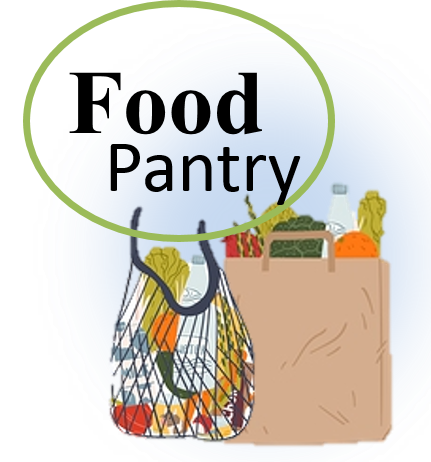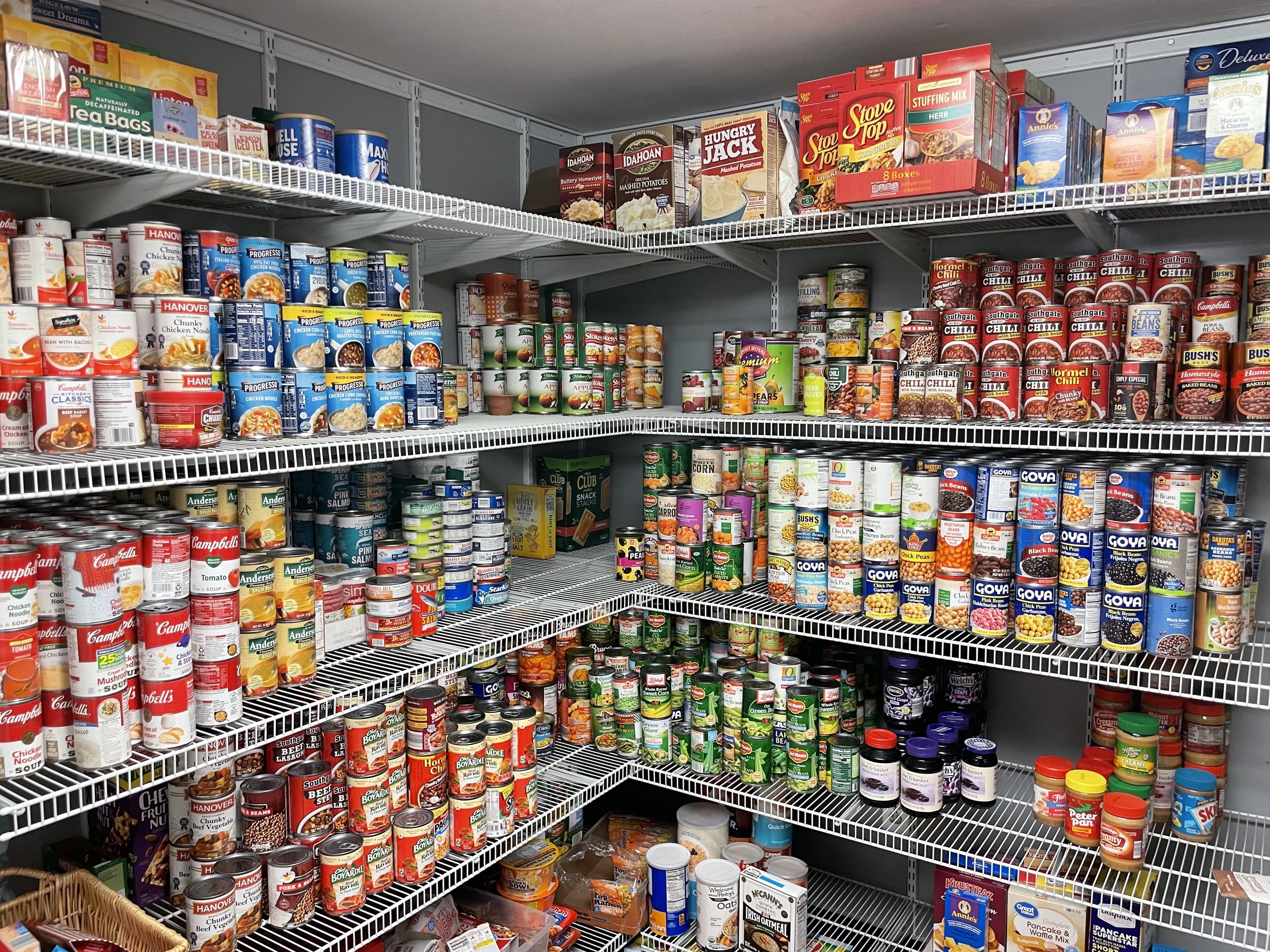The Impact of Food Pantry Lockhart on Appetite Alleviation in the Area
The Impact of Food Pantry Lockhart on Appetite Alleviation in the Area
Blog Article
Discover Ways to Donate and Support a Food Cupboard Near You
Supporting a food cupboard in your community can be a transformative experience, not just for those in requirement however also for those that choose to contribute. By recognizing the certain needs of local kitchens, you can tailor your initiatives to make a more substantial influence. Whether via food contributions, volunteering, or financial backing, each activity plays a crucial duty in attending to food insecurity. As you consider your options, there are several effective methods that can improve your payment and foster area involvement-- each with its own special benefits waiting to be explored.
Understand Food Kitchen Needs
Understanding the diverse demands of food cupboards is essential for reliable payments. Food pantries act as important sources within communities, addressing food instability among people and family members. Each cupboard might have one-of-a-kind needs based upon its place, target market, and functional capacity. To take full advantage of the effect of donations, it is crucial to determine and comprehend these specific needs.
Many food kitchens prioritize non-perishable things such as canned products, pasta, and rice, as these items have longer life span and can be distributed over time. In addition, some pantries may need individual treatment items, like toiletries and hygiene items, which are usually neglected but are important for preserving dignity among recipients.
In addition, recognizing seasonal requirements can additionally improve contributions. For example, throughout cooler months, cupboards might look for donations of warm apparel or blankets, while fresh produce is commonly much more popular throughout the summertime. Involving with pantry agents can provide useful insights into their present needs, making certain that contributions are impactful and relevant. By aligning contributions with the specific demands of food pantries, contributors can significantly boost the effectiveness of their support, inevitably fostering a stronger and more resistant community.
Kinds Of Food Donations
Food pantries often get a selection of food donations, each type playing an important function in satisfying the diverse needs of their clients. Non-perishable products, such as canned goods, pasta, rice, and dried beans, are staples as they have a long life span and can be stored conveniently. These things are necessary for creating balanced dishes and are usually the backbone of food kitchen offerings.
Perishable food contributions, including fresh fruits, veggies, milk items, and proteins like meat and eggs, are additionally indispensable. These items provide necessary nutrients and variety, though they call for careful handling and punctual circulation to make certain security and quality.
Additionally, some food kitchens accept prepared meals, which can be specifically useful for clients dealing with prompt food instability. Contributions of baking ingredients, snacks, and beverages can enhance the offerings and supply comfort things.
Lastly, specialty food items, such as gluten-free, vegan, or culturally specific products, deal with varied nutritional demands within the area. Food Pantry Lockhart. By comprehending the types of food donations that can be made, contributors can better support their local food pantries and the individuals they serve
Offering Opportunities Available
Offering at a learn this here now food cupboard uses a purposeful method to contribute to the fight versus appetite in the neighborhood. Food kitchens often depend on volunteers to assist with numerous tasks, guaranteeing that operations run efficiently and effectively. Opportunities for participation are diverse, satisfying people with various abilities and time dedications.
Usual offering duties include sorting and arranging food contributions, preparing food packages for circulation, and aiding clients throughout their sees. Additionally, volunteers might aid with management jobs, such as data entry or outreach site web efforts to increase recognition about the cupboard's services. Some food cupboards also offer possibilities to lead educational workshops, focusing on nourishment or cooking skills for clients.
Volunteers can typically pick their hours, making it less complicated to fit this gratifying job right into busy routines. Numerous kitchens welcome groups, allowing friends, household, or colleagues to participate in community solution with each other, promoting a sense of team effort and common objective.
Financial Contributions and Sponsorship
Supporting a food cupboard with monetary payments and sponsorships can significantly amplify its influence on the area. Monetary donations give food cupboards with the adaptability to purchase essential products in mass, making sure that they can fulfill the particular demands of their customers. Unlike food drives, where the kind and amount of things can be uncertain, financial support allows kitchens to tactically prepare their supply and react swiftly to changing needs.
Sponsorships can likewise play a crucial function in enhancing a food kitchen's resources. Businesses and companies can partner with neighborhood food financial institutions to money specific programs, such as nutritional education campaigns or special holiday circulations. This not only supplies financial backing however likewise constructs community awareness and interaction.
Furthermore, lots of food cupboards are acknowledged as tax-exempt companies, allowing benefactors to declare tax deductions on their payments. This monetary reward can encourage raised offering, better reinforcing the kitchen's capabilities to serve those in demand. Ultimately, financial contributions and sponsorships are important to sustaining the operations of food cupboards, guaranteeing they can remain to supply essential assistance to susceptible populaces in their neighborhoods.

Organizing Neighborhood Food Drives
Organizing neighborhood food drives can article be an efficient means to collect necessary materials for neighborhood food pantries while promoting a spirit of collaboration among locals. To efficiently start a food drive, begin by determining a target date and location that will certainly be convenient for individuals. Collaborate with regional businesses, schools, and area companies to help promote the event and motivate larger involvement.
Next, select the kinds of food items needed, prioritizing non-perishable goods such as canned veggies, pasta, and rice. Food Pantry Lockhart. Plainly communicate these requirements to prospective contributors with leaflets, social networks, and community bulletin boards. Establishing specific goals, such as a target variety of items to gather, can motivate participants and develop a feeling of seriousness

Final Thought

Sustaining local food kitchens is vital for resolving food insecurity within areas. By actively participating in these efforts, areas can function with each other to make certain that food cupboards remain fully equipped to serve those in need.
Whether via food contributions, volunteering, or economic support, each activity plays a crucial function in addressing food instability. Food cupboards serve as vital resources within neighborhoods, dealing with food instability among families and people.Food pantries often obtain a range of food contributions, each type playing a critical duty in fulfilling the varied needs of their clients.Organizing neighborhood food drives can be an effective way to collect vital materials for local food pantries while cultivating a spirit of cooperation amongst residents.Supporting neighborhood food kitchens is critical for resolving food instability within neighborhoods.
Report this page